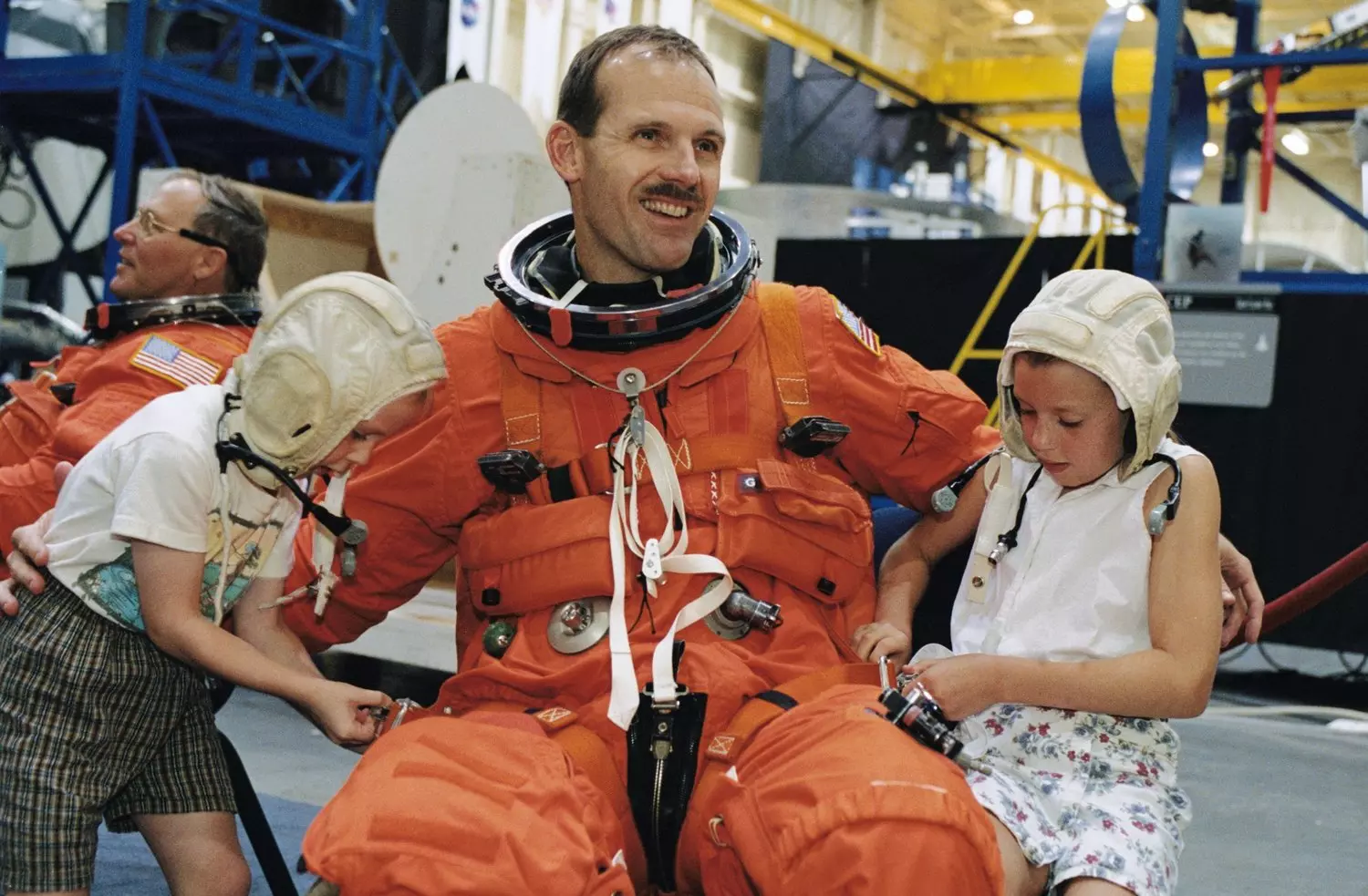
Veteran US astronaut Steven Smith. File photo from his website (astronautstevesmith.com)
Veteran US astronaut Steven Smith praises India’s rich space explorations
Smith shed some insights into the Indian space missions and NASA astronaut Sunita Williams’ involvement in the International Space Station (ISS)

“What India has achieved in the realm of space is totally unmatched,” says former NASA astronaut Steven L Smith. “Several governments and private agencies tried to follow up on the Moon mission conducted by ISRO but failed, which proves the superiority India holds in the area of space exploration.”
Smith, a former NASA engineer and veteran astronaut with an impressive resume including four spaceflights and seven spacewalks, holds a unique perspective on the current state and future of space exploration.
No concern over Sunita Williams
On the sidelines of the International Gen AI conclave Kochi, where he was the keynote speaker, Smith shed some insights into the Indian space missions and NASA astronaut Sunita Williams’ involvement in the International Space Station (ISS), providing a fascinating narrative that intertwines ambition, achievement and the challenges of space travel.
According to him, there is no cause for concern about the safety of two American astronauts, Butch Wilmore and Sunita Williams, who are currently aboard the ISS. Smith expressed confidence that the Boeing Starliner spacecraft will safely return them to Earth despite facing significant technical issues.
US spaceship
“It was supposed to be a one-week visit, but now the astronauts have stayed for a month, so they haven’t been brought home yet. They could bring them home now, but when the spaceship returns to Earth, part of it disintegrates and goes into the atmosphere, and we don’t get that piece back,” he said. “The issues occurred in that part of the spaceship on the way to the space station. So, before we bring them home, we run as many tests as we can on the piece that we won’t get back. The astronauts are not in any danger. In fact, Butch and Sunita, who is of Indian descent, are happy to stay longer than a week.”
Smith told The Federal: “Astronauts love to stay in space, and the astronauts there can use the help from Sunita and Butch. Although it is a bit of a surprise that the spacecraft had to stay longer, it’s going to be okay. We just need to run more experiments.”
Future exploration
Delving into the future of human space exploration, he believes humanity faces a pivotal crossroads: “We will either become an interplanetary species or risk stagnation.”
“So, if the question is whether we will ever become an interplanetary species, and I believe the answer is yes. This is because I am accustomed to thinking far into the future, perhaps even a million years ahead. However, in the more immediate future, say 100 to 200 years, I don’t think we will see large groups of people living on another planet. Some people suggest sending millions to Mars, for example, because they believe Earth won’t be habitable. However, Earth is a vast place with many intelligent people who can help us re-establish respect for our planet. With better care, Earth can be a great place to live forever,” says the veteran astronaut.
Mars mission
Despite challenges, Smith is optimistic about future advancements in propulsion technology, which might shorten travel times and open new possibilities for research and resource extraction on Mars. However, he maintains that Earth, with its inherent beauty and potential, should remain humanity’s primary home.
Space tourism is a burgeoning industry that has captured the public imagination, marked by rapid technological advancements and increased participation from private companies.
Space tourism
“Tourism is a small part of the space industry, but it gets a lot of media attention, which can be a bit of a distraction,” he said. “I think the current astronauts see space tourism as a good thing because it raises awareness of Earth and our space programme.
“Professional astronauts are still considered separate from tourists, and there have been some jokes about that. However, in general, I’m fine with it. Any attention the space programme can get is good attention, but I is not the main focus. It is just a little bright, shiny object that you hear about.”
Elon Musk
Smith asserts that Elon Musk and SpaceX have been pivotal in reducing the costs of space exploration and opening up possibilities for missions that were once considered unimaginable.
“SpaceX really kicked off the Space 2.0 era when they first suggested they could reduce the price of launching by 50 per cent about 15 years ago. At the time, everyone laughed at them. Big goals often seem laughable but SpaceX achieved exactly what they set out to do by coming up with clever ideas to reduce costs,” said Smith.
Indian capabilities
NASA’s evolving role, as highlighted by Smith, focuses on delegating routine tasks to private companies while tackling more challenging missions. This shift parallels the progress seen in the Indian space programme, which has made remarkable strides in recent years.
The announcement of the first four Indian nationals selected for a space mission is a testament to India’s growing capabilities in space exploration. Smith expressed admiration for India’s achievements, including the Mars Orbital Mission (MOM), which succeeded on its first attempt – a rare feat in space missions.
Astronauts of Indian descent
India’s space endeavours are not just limited to Mars. The country’s lunar missions have also garnered attention. Last year, India achieved a significant milestone by landing a probe on the Moon’s polar region, a challenging feat due to the harsh conditions.
Smith’s reflections on the Indian space programme extend to the contributions of American astronauts of Indian descent such as Kalpana Chawla, Sunita Williams and Raja Chari. These astronauts have not only made significant contributions to space missions but also serve as inspirations for future generations.
